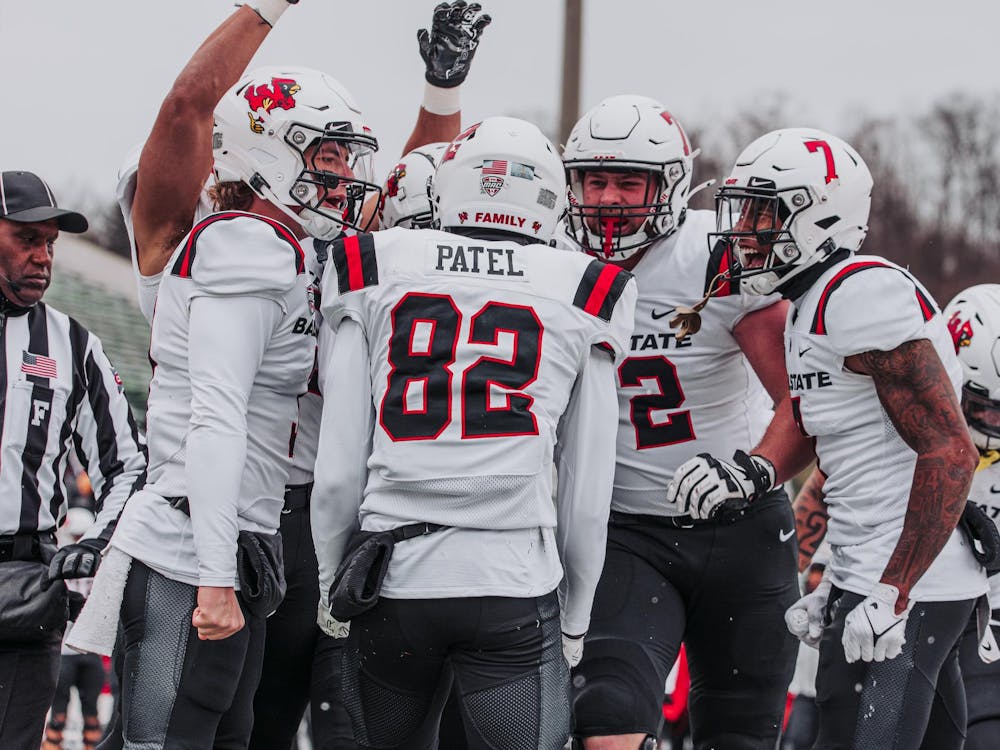Voting:
Voting for SGA ends at 5 p.m. today. Jennifer Jones-Hall, director of Student Life, emailed students a link to the Ball State site for voting. This link can be used once and will not work if forwarded.
This year’s Student Government Association election season has been noticeably different from the previous campaign.
In January, SGA Senate approved changes to the elections code, shortening the campaign trail from three weeks to two, prohibiting campaigning with electronic devices to solicit votes and requiring campaign staffs and slates to adhere to Ball State’s Student Code.
Jennifer Jones-Hall, Office of Student Life director, said the campaign so far has been clean compared to previous years.
TWO-WEEK ELECTION
Candidates said shorter campaigning gave them less time to connect with student organizations, but overall it has been a change for the better.
Nick Wilkey, Cardinal Connection presidential nominee, said he wishes he had a few more days to talk to organizations, but not an entire extra week.
He said the shorter amount of time this year was less stressful than when he campaigned last year as part of Fusion’s slate.
Jes Wade, Empower presidential candidate, said having two weeks has forced her campaign to prioritize visits to organizations.
“You have to condense the love instead of spread the love,” she said. “I don’t want to say we’re not giving love to [all organizations], but we’re trying as hard as we can.”
Alex Sventeckis, elections board chairman, ran as Fusion’s presidential candidate last year and said it was hard campaigning for such a long period of time.
“Two weeks is plenty of time to get slates ideas and platform points out there,” he said.
Jones-Hall said as an adviser, she would never advocate going back to a three-week campaign in the future.
“The stress of two weeks is a lot, but the stress of three weeks is magnified 10 times fold,” she said. “When we went into that third week [last year], everything started breaking down.”
STUDENT CODE OF CONDUCT
When the elections board encountered issues with campaigns last year, they realized the elections code did not mandate students campaigning comply with the university’s Student Code.
This year, it was directly stated and Sventeckis said now, the elections board can directly enforce the mandate if it is violated.
“I can expect student leaders to want to abide by Student Code of Conduct, but reinforcing it in elections code is a good idea,” he said.
Wade agreed slates should have already followed the Student Code, regardless of its inclusion in the election code.
“I think you should be held to Student Code no matter what,” she said. “Just because we are campaigning doesn’t make you higher than anybody else.”
STUDENT CODE OF CONDUCT
When the Elections Board encountered issues with campaigns last year, they realized the elections code did not mandate students campaigning comply with the university’s Student Code.
This year, it was directly stated and Sventeckis said now, the elections board can directly enforce the mandate if it is violated.
“I can expect student leaders to want to abide by Student Code of conduct, but reinforcing it in elections code is a good idea,” he said.
Wade agreed slates should have already followed the Student Code, regardless of its inclusion in the election code.
“I think you should be held to Student Code no matter what,” she said. “Just because we are campaigning doesn’t make you higher than anybody else.”
TABLET CAMPAIGNING
Last year, campaigning students were seen canvassing campus with iPads and other tablets, encouraging students to log in and vote on the spot. This year, that is prohibited.
Jones-Hall said this will make the election more equal.
“Students have to truly vote on issues instead of being handed something and told to vote for a slate,” she said.
Wade said Empower’s campaign is relying on a grassroots method to get votes, talking to students and encouraging them to go online.
Wilkey said all three slates in last year’s election used tablets to solicit votes and that he thinks without them, it will change the number of votes.
“[Compared to] last year, the number of votes is going to go down extremely,” he said.
Now, slates can only encourage students to vote and hope the students respond to the university email to cast their ballot.
Wilkey said he thinks this change, combined with the shorter elections period, will repair the relationship between SGA and student body.
“Last year, people got really annoyed with SGA elections and had a bad taste in their mouth afterward,” he said. “This has been overall better for the organization.”




